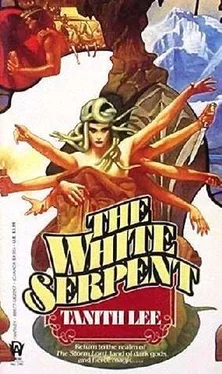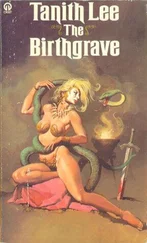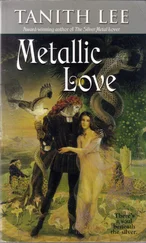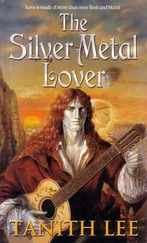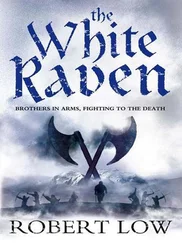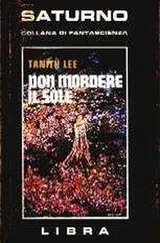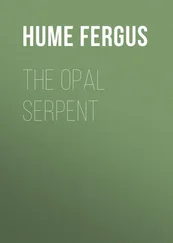Groaning, he spent the unnecessary worth of his loins, and Panduv held him in her arms.
In the third month, as was customary, Panduv was borne in her litter to the Women’s Court of the fane, to give thanks.
The Mother Temple of the capital was raised on a tall whitewashed platform with a stair of red obsidian. The pillars of the temple were painted carmine and black, and the cornice was gilded. This house of Cah did not reek of offal, only of the sweet gums and alcoholic oblations of the faithful.
The door into the Women’s Court was small and the Court itself not large. Only females of the moneyed class could afford to approach the goddess, the spot was infrequently packed. Panduv gave the prescribed coins to the portress and passed inside.
The Zakorian had come to the Court twice before, treats Arud had donated. The area comprised a bare lidless box of walls and flagged floor, with, at the farther end, a group of citrus trees, the altar standing among them.
Panduv was alone with Cah.
The statue was modern, of a woman, voluptuous but not gross, veiled as fashion preferred by a smoldering gauze. Through the film, her eyes of tawny topaz would sometimes flash like flame. She was black, so black it was not possible to trace her countenance or read her expression.
The black woman confronted the black Cah, and laid on the altar some cakes, baked, in accordance with tradition, by her own hands. Panduv’s baking was indifferent. She had no talent for such chores. But, though she had come to credit Cah, Panduv was not uneasy. Cah had got from Panduv what she wanted. A cake was only a cake.
When she left the Court, bees were gathering in the citrus trees and among the flowers on the wall. Summer was advancing. Pleasingly, the Red Moon of Zastis fell early this year, she could enjoy Arud before she grew too big.
The temple was also busy with its bees. About the offices and sanctuaries the lesser priests were hurrying. Across the platform there came the chant of boys’ voices, gaining mathematics, and beyond, the drubbing of mallets from the mason’s yard. A respect for learning and the arts had begun to invest the capital. A sculptor of the temple school had created the Cah of the Women’s Court. A theater was being built. Only men temple-trained would be licensed to act, as to carve, study the stars, or take positions of temporal authority. But a son of Arud could expect such schooling. For Teis, there were other means, a subterfuge Arud had condoned: His daughter would be granted her letters. But for his son, what might he wish he would not have?
Arud would be High Priest in ten years, or twelve. It was almost sure. Unadmitted to the secret connivance of the temple’s inner clique, yet she had glimpsed its dexterity. The new thinking of Iscah, the very statue in the Women’s Court, these in themselves evinced the nature of change, and of the men behind it.
At home Teis was sitting placidly with the current careful girl. But seeing her mother, the child came gamboling forward.
She put her hand on Panduv’s belly, where she had been told the other child was sleeping.
“How he?”
“He’s well.”
Teis pressed her ear to her mother, to hear if he was yet saying anything. Her own ability with words increased daily. She did not want to be usurped.
The summer climbed its golden stair into a palace of drenching heat and powdered dust. Its descent was jarred by rains. The winter swooped across the sea, white-winged, and snow came down again as the year before on the Iscaian south, a happening scarcely known in previous history.
There were reports of earth tremors north and east. In Dorthar a lightning bolt was said to have sliced the cupola from a temple of Anack—in Anackyra, or perhaps only at Kuma. Farther east yet, a fleet of fifty ships of Shansarian Karmiss had gone down in a tempest, not a man saved. There were scares of plague in Corhl, but the entry of the snow ended such tidings.
Wildest of all, maybe, a tale stole out of Thaddra of a white dragon lurking in the jungle wastes of the west.
It was a bad winter for many, rife with portents and false alarms, cruel with freezing.
But in the villa of Arud, the fires were lit, they dressed in furs, and roasted nuts, and the cricket still chirped in the hearth.
Her pains began in the middle of a winter night. Teis had been dilatory. This one was early.
Panduv had been dreaming. Her children were grown. The girl, in a bright gown, was up on the roof. A parasol of tree stood in a tub beside the pond now, and hanging there in a cage was a chattering bird, which Teis was feeding. She seemed aged about eighteen. Her hair, though woven back in a ceramic band, reached almost to the ground. At its very tips, the shining mass was divided into brief little plaits, twelve of them, each ending in a gleaming golden ring. Panduv deduced that her daughter had married.
Her son was unmistakable.
He was black, as she was, but although he had the beauty of a god to her eyes, it was not like her beauty. Not even, as she considered it in the dream, Rehger’s beauty, quite. But he had the eyes of Rehger the Lydian, and coming up to her smiling and calm, he put into her hands a gift. It was a living leaping breathing burning dancer—of somber wood.
“Tor the Giving Feast,” he said, “Cah’s festival.” Then, without demand or unease, “Do you like it, mother?”
He was happy. It was not in the smile. But in the substance of the inner depth behind his visionary seer’s eyes. He was entire.
She turned the dancer in her hands, amazed, and Teis leaning on her shoulder said, “Mother, that’s you.”
And suddenly her whole body sloughed from her and her soul, yes the soul of her, was dancing the fire dance, with all the nonsense of the body scorched away—But in that second a shriek of pain ran through her core.
He began early and he hurried to the world. In the agony she remembered to call out the appropriate sentence: “Cah aid me!” Cah aided. The head of her son, black as charcoal, pushed into life. Once the torso and the limbs came out, Panduv saw she had birthed a perfect living creature.
Arud when—against the tenets—he entered the room and took the boy, lifted him up and swore.
“Your color, you Zakr woman. But he has my eyes. Look, do you see? My eyes and my race—male, by the goddess.”
Exhausted, Panduv drifted on her pillows. Arud put earrings of gold into her hand, just as, in a dream, some other present had been placed there—but the idea of it had gone from her in the toil of labor.
Then they gave her the baby and she suckled him.
He had the Lydian—the Lan’s—eyes, but it was benign that Arud should mistake them for his own. He would be a generous father. In all but flesh and blood, this would be his son.
She would convince Arud that the child must have an Iscaian name, an old name of the uplands, which in Iscah was mostly given as Raier.
Against her breast, the child slumbered. His face was composed and couth. Within its pliable contours she beheld, clear as moon in cirrus cloud, the serene and sleeping face of a man of sixteen or twenty-five years. But that was still to come.
